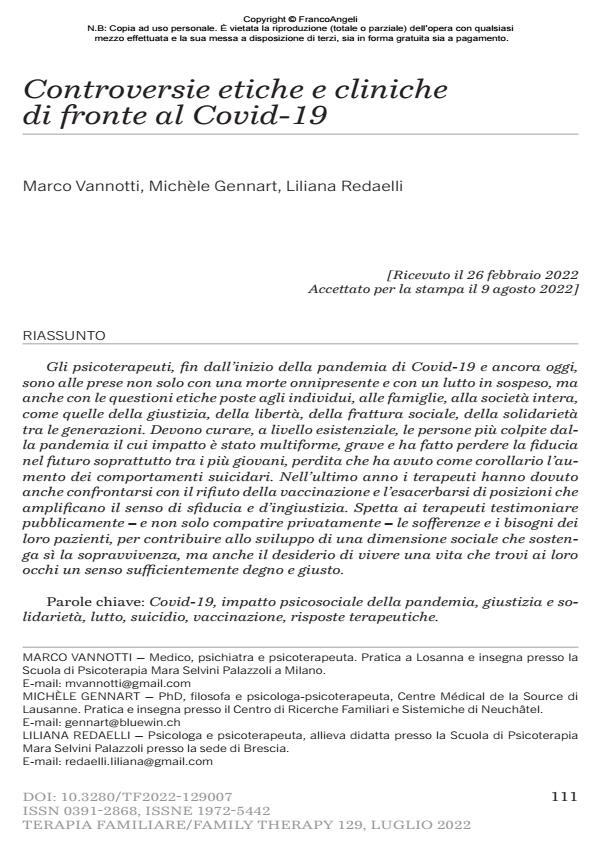Ethical and clinical disputes in the face of Covid-19
Journal title TERAPIA FAMILIARE
Author/s Marco Vannotti, Michèle Gennart, Liliana Redaelli
Publishing Year 2022 Issue 2022/129
Language Italian Pages 18 P. 111-128 File size 643 KB
DOI 10.3280/TF2022-129007
DOI is like a bar code for intellectual property: to have more infomation
click here
Below, you can see the article first page
If you want to buy this article in PDF format, you can do it, following the instructions to buy download credits

FrancoAngeli is member of Publishers International Linking Association, Inc (PILA), a not-for-profit association which run the CrossRef service enabling links to and from online scholarly content.
Psychotherapists, from the beginning of the Covid-19 pandemic and still to- day, are grappling not only with an omnipresent death and pending mourning, but also with the ethical questions posed to individuals, families, and society, like those of justice, freedom, social fracture, solidarity between generations. They must treat, on an existential level, the people most affected by the pandemic, the impact of which has been multifaceted, serious and has made people lose faith in the future, especially among the youngest, a loss that has had as a corollary the increase in suicidal behavior. In the last year, therapists have also had to deal with the refusal of vaccination and the exacerbation of positions that amplify the sense of mistrust and injustice. It is up to the therapists to testify publicly and not just privately pity - the sufferings and needs of their patients, to contribute to the development of a social dimension that supports survival, but also the desire to live a life that finds sufficient meaning, worthy and fair.
Keywords: Covid-19, Psychosocial impact of the pandemic, Justice and Soli- darity, Mourning, Suicide, Vaccination, Therapeutic responses.
Marco Vannotti, Michèle Gennart, Liliana Redaelli, Controversie etiche e cliniche di fronte al Covid-19 in "TERAPIA FAMILIARE" 129/2022, pp 111-128, DOI: 10.3280/TF2022-129007